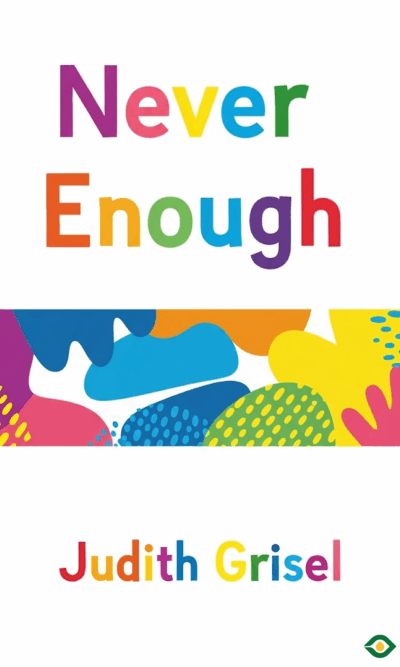Description
Most of us complain more than we realize. It might be about the weather, the traffic, the long wait at a store, or the way someone treated us. Complaining feels natural, but it actually doesn’t help us. Instead, it makes problems seem bigger, adds stress, and spreads negativity to others.
The idea of living complaint-free is about breaking this cycle. It’s not about pretending life is perfect. Problems will always exist. But the way we react to those problems makes a huge difference in how we experience life. A complaint-free life is about seeing challenges differently, focusing on solutions, and keeping a positive mindset even when things go wrong.
The process starts with awareness. At first, many of us don’t even notice how much we complain. This stage is called “unconscious incompetence” because we’re unaware of our own habit. Once we begin to pay attention, we move into the next stage: “conscious incompetence.” Here, we recognize when we’re about to complain but still do it. It can feel frustrating, but it’s progress because awareness is the first step to change.
The third stage is “conscious competence.” This is when we actively choose different words. Instead of complaining, we might express gratitude, share encouragement, or simply stay quiet. It requires effort, but it feels rewarding. The final stage is “unconscious competence,” when positivity becomes natural. At this point, you don’t even think about avoiding complaints; you’ve trained your mind to choose a better response.
Why do people complain so much in the first place? One reason is social connection. Complaining together feels like bonding. If you’re stuck in traffic, sharing frustrations with someone can make you feel less alone. But there’s a cost. Each time we join in, we reinforce negative thinking. Our brains begin to prefer looking for what’s wrong instead of what’s right.
There’s also a physical cost. Complaining produces stress, which can raise blood pressure and weaken the immune system. Over time, this can contribute to health problems. Some doctors estimate that many illnesses are linked to stress and negative thinking. On the other hand, focusing on positive thoughts can improve physical well-being. Stories of people who shifted their focus and felt better physically show the strong connection between the mind and body.
To help break the habit, the author of A Complaint Free World suggested a simple wristband technique. You wear a bracelet on one wrist, and every time you complain, you move it to the other wrist. The goal is to go 21 straight days without moving the bracelet. It sounds simple, but most people take months to succeed because they underestimate how often they complain. The bracelet makes the habit visible, and this visibility is powerful for change.
At first, this feels uncomfortable, almost like hearing your own recorded voice for the first time. But the discomfort is a sign of growth. Every time you switch the bracelet, you’re reminded of your commitment to change. Even if you fail many times, each attempt builds new awareness and self-control.
One challenge is dealing with people around you. Many friendships and conversations are built on complaining. When you stop joining in, it may feel awkward. Friends may expect you to grumble with them, and when you don’t, they notice. But this discomfort is temporary. Some people may even become inspired by your change and try it themselves. Your positive energy can spread just as easily as negativity once did.
Silence plays a big role in this process. Instead of filling space with complaints, you can pause, reflect, or simply listen. Silence allows you to think before you speak, which helps avoid negative words. It can also create deeper connections with others when you choose positive or meaningful conversation instead of habitual grumbling.
As your complaint-free journey continues, you’ll notice changes in how you use language. Words matter. The way we describe our experiences shapes how we feel about them. By shifting words like “problem” to “opportunity” or “failure” to “lesson,” we retrain our minds to focus on growth instead of frustration. Even small changes in wording can bring a major shift in perspective.
At the final stage, positivity becomes natural. People who’ve completed the challenge describe it like entering a new life. Their thoughts feel lighter, and negative conversations lose their appeal. Complaints become rare, almost like a foreign language you no longer speak. This doesn’t mean ignoring difficulties, but it means facing them with a calm and constructive attitude.
There are many examples of transformation. Some people reported becoming more cheerful at work. Others noticed improvements in relationships because they stopped criticizing and instead expressed gratitude. Families, friends, and coworkers began noticing the difference too. The shift from negativity to positivity creates a ripple effect, touching everyone around you.
It’s not an easy process, though. Many people take months or even years to successfully complete the 21-day challenge. It requires patience, persistence, and self-compassion. You will fail many times, but each failure is part of the journey. Think of it as building a new muscle. At first, it feels weak, but with consistent practice, it grows stronger.
The reward is a new way of living. A complaint-free life means less stress, stronger health, better relationships, and more joy. You become more aware of the good things around you and less weighed down by what’s wrong. Instead of draining energy by repeating complaints, you invest energy into creating solutions and noticing beauty.
In the end, the goal is not perfection. The goal is growth. Each step away from complaining and toward gratitude improves life. By focusing on what you want instead of what you don’t want, you change not only your mindset but also your environment. People notice your calmer, happier presence, and many are inspired to try the journey themselves.
Living without complaints is like opening a window to fresh air. It doesn’t make problems vanish, but it gives you a healthier, lighter, and more hopeful way of experiencing life. The 21-day challenge is only the beginning. The real transformation comes when positivity becomes a natural part of who you are.





